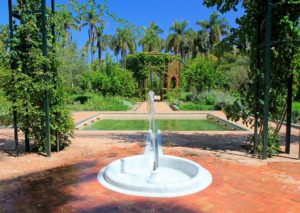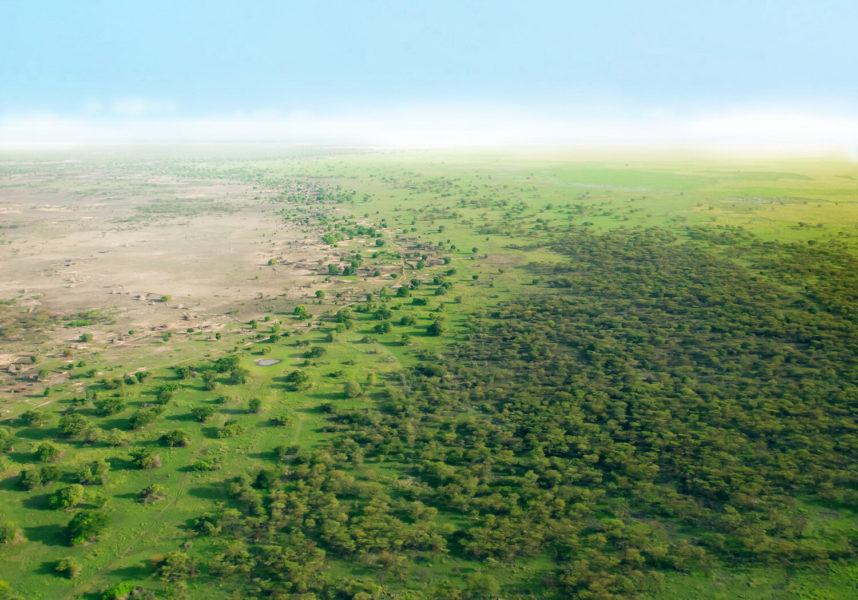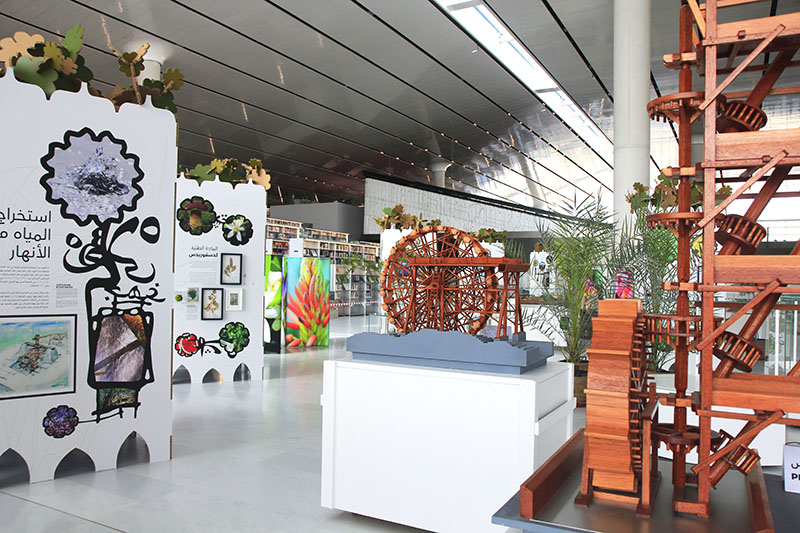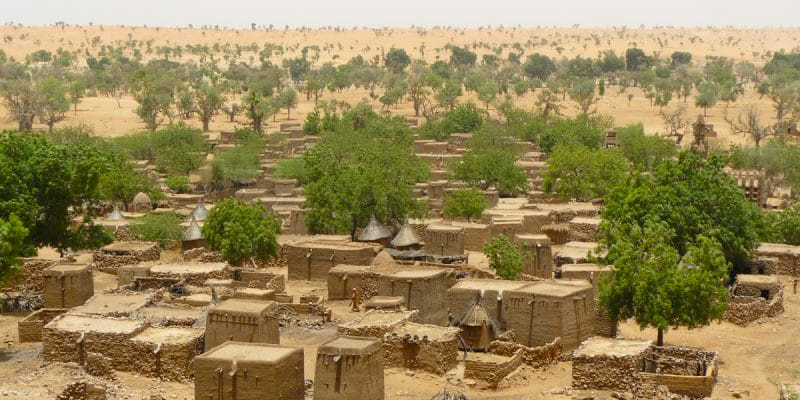The 27th Conference of the Parties to the United Nations Framework Convention on Climate Change (COP27) was recently held in Egypt from 6-18 November. It was an event marked by the tension among its participants and the increasingly evident quest for action to achieve the climate goals agreed in the Paris Agreement. Despite the widespread discontent and dissent, the conclusion is clear: there is much work to be done on climate issues and it is not possible to do it without the collaboration of its many actors. The energy and ecological emergency is here. That is why, at the Islamic Culture Foundation (FUNCI) and Group of Analysis of Islam in Europe GRAIS, we wanted to convey that religions, specifically Islam and its heritage, are a possible way to generate alliances, given their capacity to mobilise and influence human behaviour.
The conclusion is clear: there is a lot of work to be done on climate issues and it is not possible without the collaboration of its many actors. The energy and ecological emergency is here.
In this context, a round table entitled “Environmental sustainability and Islam” was organised on 16 November, within the framework of the 22nd Science and Innovation Week of the Complutense University of Madrid. This round table was composed of Luey Hamadache (Islamic Cultural Centre of Valencia, student of Islamic sciences), Encarna Gutiérrez (Islamic Culture Foundation) and Borja Heredia (Spanish Ministry of ecological transition and demographic challenge), and was moderated by Johanna M. Lems (GRAIS, Margarita Salas UCM/UAM). The round table was open to facilitate the participation of the audience through comments, questions and experiences.
 Its objective was to analyse environmentalism from the perspective of Islam and to learn about some of the local and international initiatives that have been promoted from Islamic teachings. As a result of this meeting and the magnificent interventions made during the two hours it lasted, we can highlight certain ideas and concepts that we consider essential. The aim of this article is to compile the fundamental points and actions discussed during the round table on the subject of the environment and Islam in order to disseminate them and revisit them whenever necessary.
Its objective was to analyse environmentalism from the perspective of Islam and to learn about some of the local and international initiatives that have been promoted from Islamic teachings. As a result of this meeting and the magnificent interventions made during the two hours it lasted, we can highlight certain ideas and concepts that we consider essential. The aim of this article is to compile the fundamental points and actions discussed during the round table on the subject of the environment and Islam in order to disseminate them and revisit them whenever necessary.
A first step
Knowledge is one of the fundamental pillars of Islam. The Qur’anic scriptures themselves and the prophetic teachings push the individual to this quest and to Science, any science. In other words, everything that is science is also affected by Islam and there is nothing that is good for the human being that is not Islamic by definition.
The aim of the meeting was to analyse environmentalism from the perspective of Islam and to learn about some of the local and international initiatives that have been promoted from Islamic teachings.
It should be borne in mind that Islamic culture is not the fruit of a single moment, but integrates an ancestral heritage that connects it with remote civilisations in a process of continuous synthesis that extends to the present day. Thus, as the Islamic world expanded, it also expanded and incorporated new knowledge as its own. Today, various initiatives and organisations have continued, through different actions, to try to adapt these teachings to the new challenges and needs of the contemporary world.
Encarna Gutiérrez, Secretary General of FUNCI, highlighted the importance of Islamic contributions to the landscape and their use in the Iberian Peninsula, past and present. A starting point that served, after the terrorist attacks to New York in 2001, to generate actions that not only highlighted this heritage, its contributions to the knowledge and protection of nature, but also to fight against Islamophobia. The Gardens of Al-Andalus exhibition was organised at the time, to promote the idea of the Islamic garden as a space of mysticism and pleasure, but also of science and research, with great beauty and climate control.
The lack of sustainability in many Islamic-majority countries has been a challenge for many years, which led FUNCI to launch the Med-O-Med net, as a way to collaborate with the countries of the Mediterranean and Middle East. The fact that the founding texts of Islam and the prophetic tradition attach great importance to the environment constitutes a basis of convergence for the development of joint actions between the countries of the region.
 As was repeatedly stated at the roundtable, understanding the relationship between environmental sustainability and Islam requires the introduction of the concept of mizan, “balance” in Arabic, “equilibrium” and “equity”, which refers us to a holistic, capitalised sustainability, where there is no difference between internal and external, material and spiritual aspects. It is this same balance that allows us to distinguish between good and bad, a balance that God uses to create a balanced universe. This awareness enables humans to know that resources are not to be used excessively until they are exhausted, but that their cycles must be respected so that they may continue to develop for the benefit of oneself and one’s community, or ummah. Learning to cultivate oneself, to cultivate what one has around oneself.
As was repeatedly stated at the roundtable, understanding the relationship between environmental sustainability and Islam requires the introduction of the concept of mizan, “balance” in Arabic, “equilibrium” and “equity”, which refers us to a holistic, capitalised sustainability, where there is no difference between internal and external, material and spiritual aspects. It is this same balance that allows us to distinguish between good and bad, a balance that God uses to create a balanced universe. This awareness enables humans to know that resources are not to be used excessively until they are exhausted, but that their cycles must be respected so that they may continue to develop for the benefit of oneself and one’s community, or ummah. Learning to cultivate oneself, to cultivate what one has around oneself.
To understand the relationship between environmental sustainability and Islam, it is necessary to introduce the concept of “mizan”, “balance” in Arabic, “equilibrium” and “equity”, which refer to sustainability in capital letters.
“To restore this environmental balance”, says Luey Hamadache (Islamic Cultural Centre of Valencia), “it is necessary to transfer the theoretical focus of the Quranic teachings into practice, to educate ourselves so that the actions we take have the correct repercussions. The natural world is the means through which we take the Creator’s blessing, and protecting it is a form of respect for the living beings that make it up. Firstly, it is proposed as an initial framework the creation of a space in which people can feel safe, so that, from this community environment, they can undertake social actions such as taking care of parks, cleaning, sustainability actions… Islam forbids the pollution of the environment and foribds waste in all its forms, including the waste of water”.
Another key concept is that of jihad, which refers to the “effort” or “perseverance” to achieve Islam, in this case referring to the personal effort to achieve fulfilment and the fight against those elements that seek to corrupt well-being, such as climate change. Defending the earth’s commons requires effort, which is why education in universal values is needed, perhaps from the origins and roots of Islam, other religions or different communities, to promote environmental awareness and obligations towards nature.
This effort has been translated into a series of tools that have shaped the green architecture (Stockholm 1972, Earth Summit; Rio de Janeiro 1992, Rio Summit; UNEA resolutions…) on which environmental protection has been built. Islam has not remained indifferent to this process. On the contrary, as Borja Heredia explained, Islamic countries have led the initiatives and the creation of laws and regulations for its stability and beauty. In 2015, during the International Islamic Symposium on Climate Change in Istanbul, Islamic leaders called on the 1.6 billion Muslims to play an active role in the fight against climate change and urged governments to reach an agreement. The flagship initiative has been the Great Green Wall of the Sahara and Sahel, aimed at easing the effects of desertification by transforming the lives of millions of people through the creation of a vast mosaic of green and productive landscapes.
Conclusions
It is necessary to link and appeal to religious or ethical consciences for the fulfilment of these objectives. To this end, it is necessary to establish small habits and implement practices to educate the new generations and create links between different social groups. The Qur’an urges the individual to protect and care for the environment and not to waste the earth’s resources as an individual responsibility that has a positive impact on the common good and contributes to individual fulfilment. It is a matter intrinsic to Islam, which has produced extensive technical knowledge for the care of the environment and the development of actions and tools that have generated, today, global commitments.
Ultimately, Islam is understood as a possible way to combat climate change, which is necessarily based on care for the environment, but the impetus must come from individual initiative that needs the community to achieve “sustainable holism”.
Aurora Ferrini – FUNCI
Do you want to watch the full roundtable?
This post is available in: English Español



